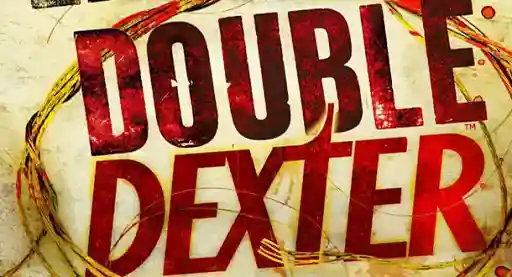Bookshots: Pumping new life into the corpse of the book review
Title:
The Bone Clocks
Who wrote it?
Stylistic chameleon David Mitchell, author of the stylistic chameleon, Cloud Atlas.
Plot in a box:
Young Holly Sykes hears other people's voices in her head. At fifteen years old, she runs away from home. Her brother goes missing a few days later. She spends the rest of her life trying to make sense of his disappearance, even when it involves warring psychic factions.
Invent a new title for this book:
Cloud Atlas for Dummies
Read this if you like:
Cloud Atlas by David Mitchell, The String Diaries by Stephen Lloyd Jones
Meet the book’s lead(s):
Holly Sykes, fifteen year old runaway; Holly Sykes, twenty-something barmaid in the Swiss Alps; Holly Sykes, "married" mother of one; Holly Sykes, best-selling author of the spiritual memoir, The Radio People; Holly Sykes, middle-aged woman embroiled in inter-dimensional espionage; Holly Sykes, seventy five year old grandmother living in dystopian Ireland.
Said lead(s) would be portrayed in a movie by:
A few different actresses, if you want to avoid an embarrassing makeup debacle a la the Wachowski's Cloud Atlas adaptation. The same actress could handle the middle sections, but you'd definitely want a teen and an older woman for the beginning and the end. Hailee Steinfeld for the kid, if you grab her up quick, and Dame Judi Dench for the grandmother. And how about Jennifer Lawrence for the middle Hollys? C'mon, America! You know you still lover her! Plus, she is a damn fine actress.
Setting: Would you want to live there?
So many settings... But Iceland and pre-dystopian Ireland sound gorgeous. And a month from now, I will have been to one of them!
What was your favorite sentence?
Here's a good example of Mitchell's linguistic playfulness:
"Get our firm diaphragms wobbling, boys! Wibble-wobble, wibble-wobble. Trebles, lesss sssybilanccce on the esss—we aren't a troupe of Gollums, now, are we?"
The Verdict:
There are moments when this novel gets a little silly. Even in the hands of a writer as talented as Mitchell, a psychic battle is a pretty preposterous thing. All frantic gestures and floating bodies. Still, if you can get past that, there is so much here to entertain and inspire, so much in Mitchell's storytelling to marvel at. It helps that the really fantastical stuff doesn't happen until well past the halfway point. By then you are so absorbed in the characters and their connections, you take it in stride. There's no way in hell a little Harry Potter action is gonna stop you from finishing this book.
Especially if you're a Mitchell fan. The Bone Clocks shares a number of similarities with Cloud Atlas, his most popular novel. Both books contain a sextet of interconnected stories that deal with souls being shared between bodies (although the connections in Cloud Atlas are much more subtle). Also, the stylistic differences between the sections in Clocks are not as pronounced. Except for the final section, most of them take place in a world we recognize as our own, with writing that could be described as "contemporary."
So in that respect, The Bone Clocks is like a more accessible version of Cloud Atlas. But calling it that would be doing it a disservice. Being more accessible does not make it a lesser novel. It is, quite simply, a joy to read. Each section builds upon the last, while still presenting the reader with exciting new characters and scenarios. Mitchell transcends time and place, feeling equally at home in 19th Century Australia as he does in Ireland in the 80s. It's like he's been to all these places, lived lives within lives.
Despite this, this is not a patchwork novel. It is a cohesive whole. One that will have you racing ahead to see what happens next, but also flipping back to reread as you discover new connections. In that way, the reading almost becomes a non-linear experience. Fluid, like the lives of the Horologists. Still, it never loses its momentum. This is a story about the future as much as anything else. Not just the future of the characters, but the future of the environment, society, and of all mankind.

About the author
Joshua Chaplinsky is the Managing Editor of LitReactor. He is the author of The Paradox Twins (CLASH Books), the story collection Whispers in the Ear of A Dreaming Ape, and the parody Kanye West—Reanimator. His short fiction has been published by Vice, Vol. 1 Brooklyn, Thuglit, Severed Press, Perpetual Motion Machine Publishing, Broken River Books, and more. Follow him on Twitter and Instagram at @jaceycockrobin. More info at joshuachaplinsky.com and unravelingtheparadox.com.








